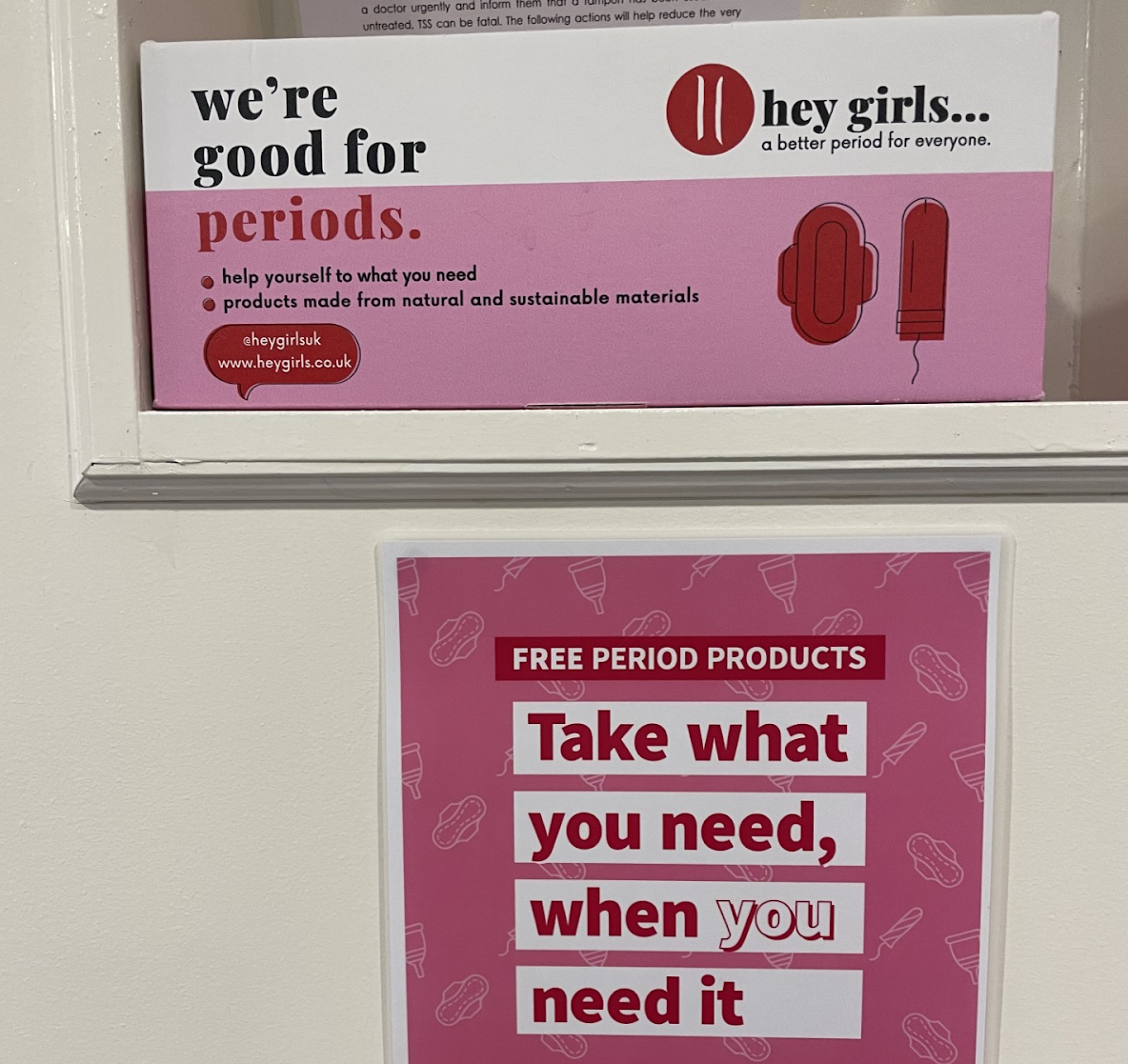Free menstrual products in schools cuts absenteeism
By Allison Carpenter / NM News Port
In 2023, the New Mexico State Legislature passed a law to address “period poverty” in schools. It funded access to menstrual hygiene products so as to reduce school absences. A Boston Medical Center women’s health study showed that nationally 20% of teenagers struggle to afford menstrual products. The percentage is higher among Hispanic students.
These facts make New Mexico a target of opportunity. It is a poor state with a high Hispanic population disproportionately affected by the burden of buying menstrual products.
The law benefited elementary schools, middle schools and high schools, requiring its funding be spent providing all female bathrooms with free menstrual hygiene products – as well as one male restroom and one family restroom per building.
“Because, you know, truly it should be in every bathroom,” said Taos Representative Kristina Ortez, a supporter of the bill.
Despite the bill being passed at the beginning of 2023, its intention has yet to reach all schools in New Mexico.
“I haven’t heard from any of my colleagues about it,” said Brianna Joyce, a music teacher at Governor Bent Elementary School, an Albuquerque public school. “Nobody’s mentioned this is happening at my school.”
Joyce has students as young as 10-years old who menstruate, but for them to get access to necessary products they have to ask their teacher for permission to go to the nurse, and then ask the nurse.
“I think they only have them in the nurse’s office,” Joyce said.
In Los Lunas, high school drama teacher Michelle Gammil says women’s product dispensers were installed over the summer, before school started in the fall.
“There are machines with free products in all restrooms, from what I’ve seen,” Gammil said.

Joyce worries that, at the elementary school, if free menstrual products were easy to access in bathrooms, the kids would waste them.
“They’d get destroyed, or made a mess of, or open and stuck everywhere,” Joyce said.
Ortez recalls being shocked about the debates that were happening on the legislative session floor. One of her colleagues, she said, made a comment as to why male restrooms shouldn’t have menstrual products.
”Something about, like, you know, there are going to be boys who, like, take pads and stick them on their heads… and shove a bunch of tampons in tailpipes,” Ortez said, adding that such behavioral concerns should not disadvantage women and girls.
“Your boys’, or your grandsons’, or your nephews’ terrible behavior should be, you know, rectified by their caregivers and their parents, Ortez said. “It should not be the reason why we are not doing this.”

To some extent, critics of the bill did prevail. As proposed, the measure would have cost $3 million — or about $5-$7 per student. But the final funding was limited to $1 million.
Ortez said the pushback unfairly punished young women who can’t afford or can’t access necessary and timely hygiene products.
“Not coming to school because you don’t have any pads or tampons at home,” Ortez said, “being embarrassed and ashamed because you bleed through. That still happens.”
The original bill included the initial cost of installing machine dispensers in all the schools. At the reduced budget of under $1 million, the program won’t go as far.
Ortez says if the funding isn’t enough to cover the demand, she’s willing and ready to fight for the cause again, in 2025, after more data about the program has come in.
